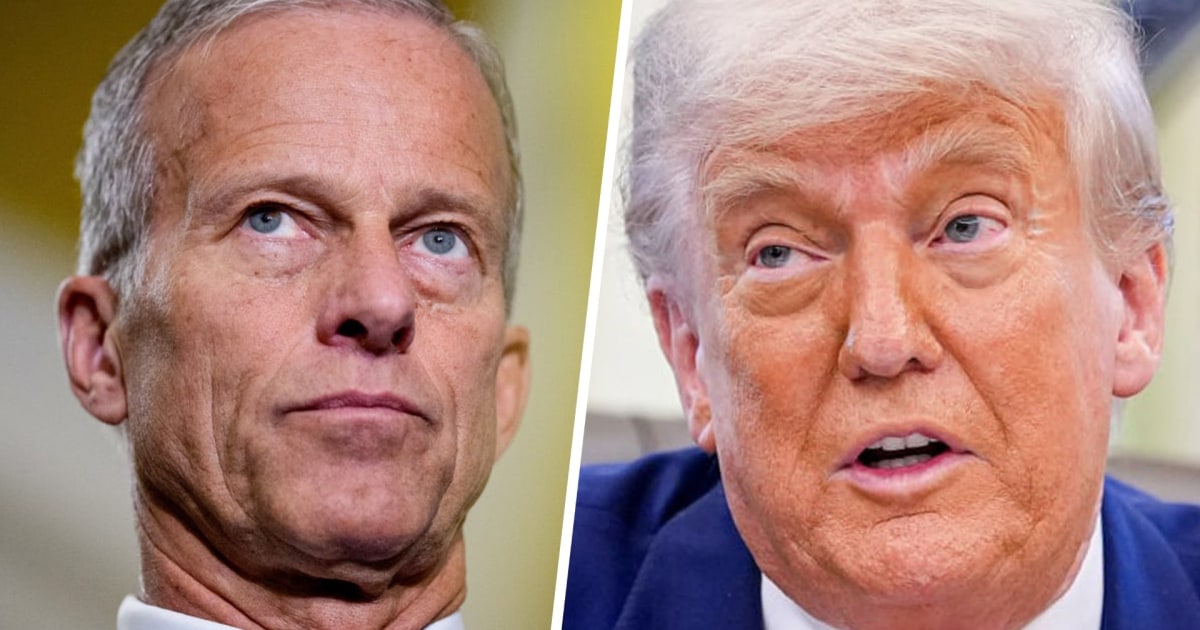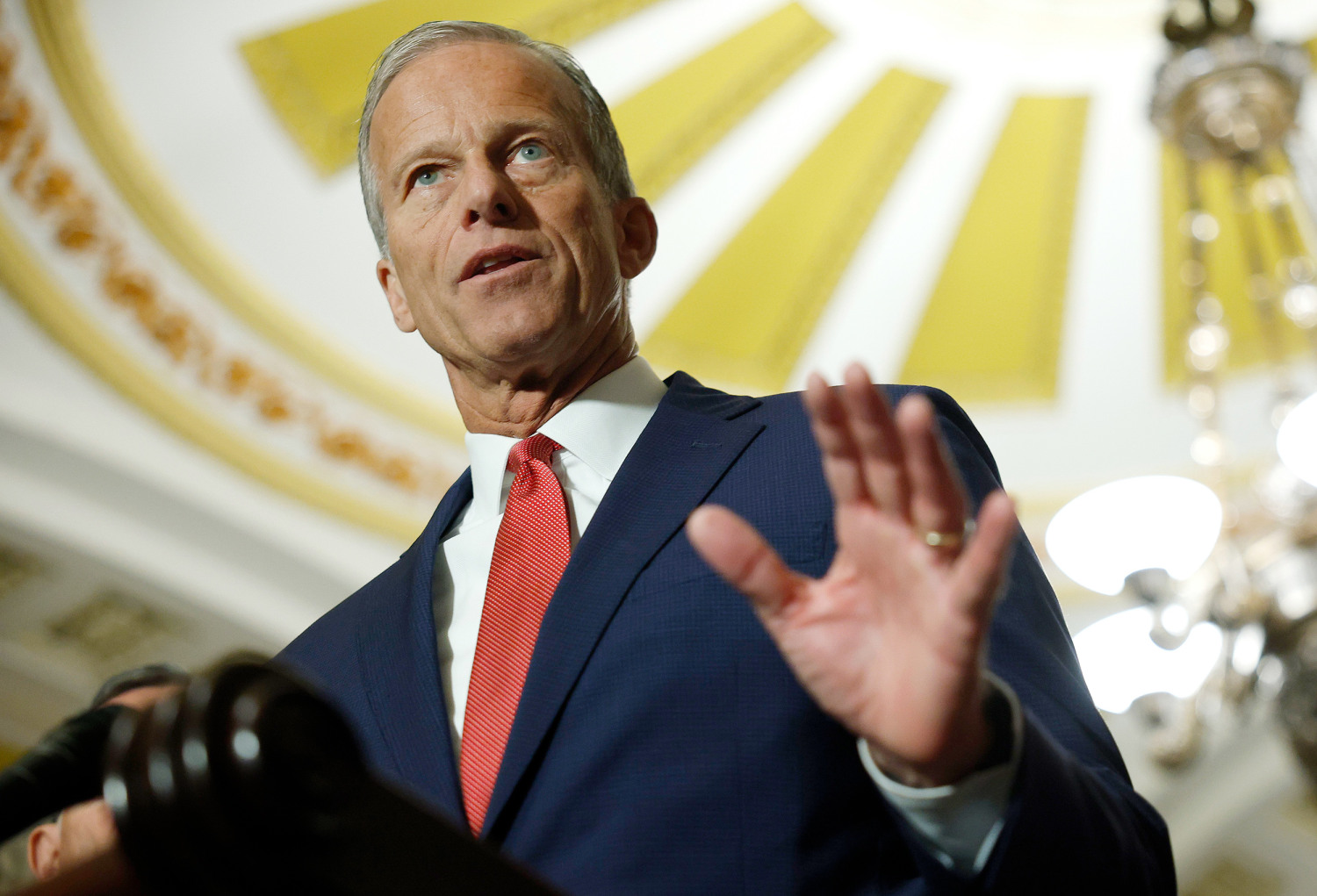No one noticed it at first. The clinking of silverware, the murmurs of polite conversation, the smell of coffee filling the private Republican breakfast room in Washington. It was supposed to be routine — a morning for smiles, strategy, and unity.
But then Donald Trump exploded.
What began as a simple discussion about legislative gridlock turned into a scene that left even senior senators shifting in their seats.
The Outburst Heard Around the Capitol

According to multiple attendees, Trump’s voice rose sharply as he slammed his palm on the table. His grievance? The Senate’s failure to eliminate the filibuster, a procedural rule requiring 60 votes to pass most major legislation.
He accused Republican senators of “weakness” and “cowardice,” arguing that the inability to scrap the rule cost him control — and, in his view, paved the way for Zoran Mani’s shock victory in New York’s mayoral race.
“You let them take the city away from us!” Trump reportedly shouted. “If you had the guts to end that stupid rule, Mani wouldn’t have stood a chance!
”
The room fell silent. Forks froze halfway to mouths. Eyes darted. And then — a voice, calm but firm, broke the stillness.
John Thun’s Quiet Defiance

Seated directly across from Trump was
Senator John Thun, his face unreadable. He didn’t raise his tone. He didn’t match Trump’s fury. But his response cut deeper than any shout ever could.
“Mr. President,” he said evenly, “you’re asking for something that’s impossible. You can’t eliminate the filibuster with 53 votes. You need 60. That’s the Senate. That’s how it works.”
The words landed like a slap cloaked in civility. Trump’s face reportedly turned red as Thun continued.
“Even if you wanted to change the rule with a simple majority,” Thun added, “you’d have fewer than a dozen Republicans willing to go along. The votes just aren’t there.”
That was the wound. Not the rule — but the revelation.
Trump’s authority inside the party, once ironclad, had fractured.
A Moment That Exposed the Cracks
What Thun revealed wasn’t merely procedural arithmetic. It was
political reality: Trump no longer commands automatic obedience from Senate Republicans.
Only 10 to 12 senators — out of 53 — were willing to back him on one of his most aggressive demands. The number, quietly confirmed by aides afterward, symbolized something larger than a legislative defeat. It was a
collapse of fear — the first real sign that Trump’s grip on the party is weakening.
In the eyes of many older Republican legislators, the former president’s pressure tactics no longer work the way they once did. They’ve grown weary — not of his base, but of the endless chaos.
The Filibuster: A Line in the Sand
The irony is that Trump’s rage targeted the very principle that many conservatives see as sacred: the filibuster.
Thun’s defense of it was more than political defiance — it was philosophical.
“The filibuster is what keeps the Senate the Senate,” he told colleagues later that day. “It’s the balance between passion and principle. Once you destroy it, you destroy the institution itself.”
Those words resonated deeply among traditionalists, especially the older Republican bloc that still reveres the Senate as an anchor of deliberation, not a stage for vengeance.
Thun’s calm conviction contrasted sharply with Trump’s fury — the image of
reason standing against rage.
The Final Blow: A Funding Deal Trump Couldn’t Stop
If the breakfast meeting revealed Trump’s fading control in the Senate, the news that followed hours later confirmed it.
House Speaker Mike Johnson, once seen as one of Trump’s most loyal allies, quietly agreed to extend the government funding deadline into early next year.
Trump had privately demanded a shutdown showdown — a dramatic test of loyalty to his “America First” economic agenda. Instead, Johnson chose pragmatism.
In political terms, it was the second public rebuke of Trump’s authority in a single day.
“Trump wanted chaos,” one senior GOP aide said. “He got coffee and calm reality instead.”
A Breakfast That Changed the Power Map
For years, Trump’s style of politics thrived on fear and dominance. But this breakfast — this small, unrecorded, supposedly private meeting — became a turning point.
The old tools didn’t work anymore. His anger didn’t intimidate. His threats didn’t move votes.
What lingered instead was Thun’s measured defiance and the dawning realization that Trump’s inner circle has grown smaller — not because of betrayal, but exhaustion.
“He’s not the party anymore,” one longtime Republican strategist told The Atlantic. “He’s just the loudest voice in the room — and now even the room’s tired of shouting.”
A Glimpse of the Future
As senators left the dining hall that morning, the usual handshakes were missing. Conversations were hushed, glances distant. Trump exited first, visibly furious. Thun, by contrast, walked out quietly — no entourage, no cameras — but with the rare dignity of a man who had spoken truth to power without raising his voice.
In the days since, stories from that breakfast have spread through Washington like wildfire. To some, Thun’s words were a simple correction. To others, they were the symbolic moment the party began to detach itself from Trump’s shadow.
And as one retired senator put it succinctly:
“Trump yelled about the Senate rule. But Thun reminded him — and all of us — that democracy still has rules of its own.”



